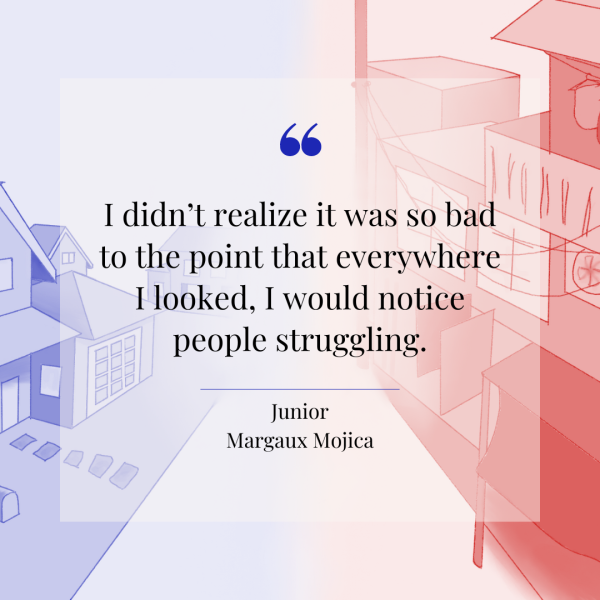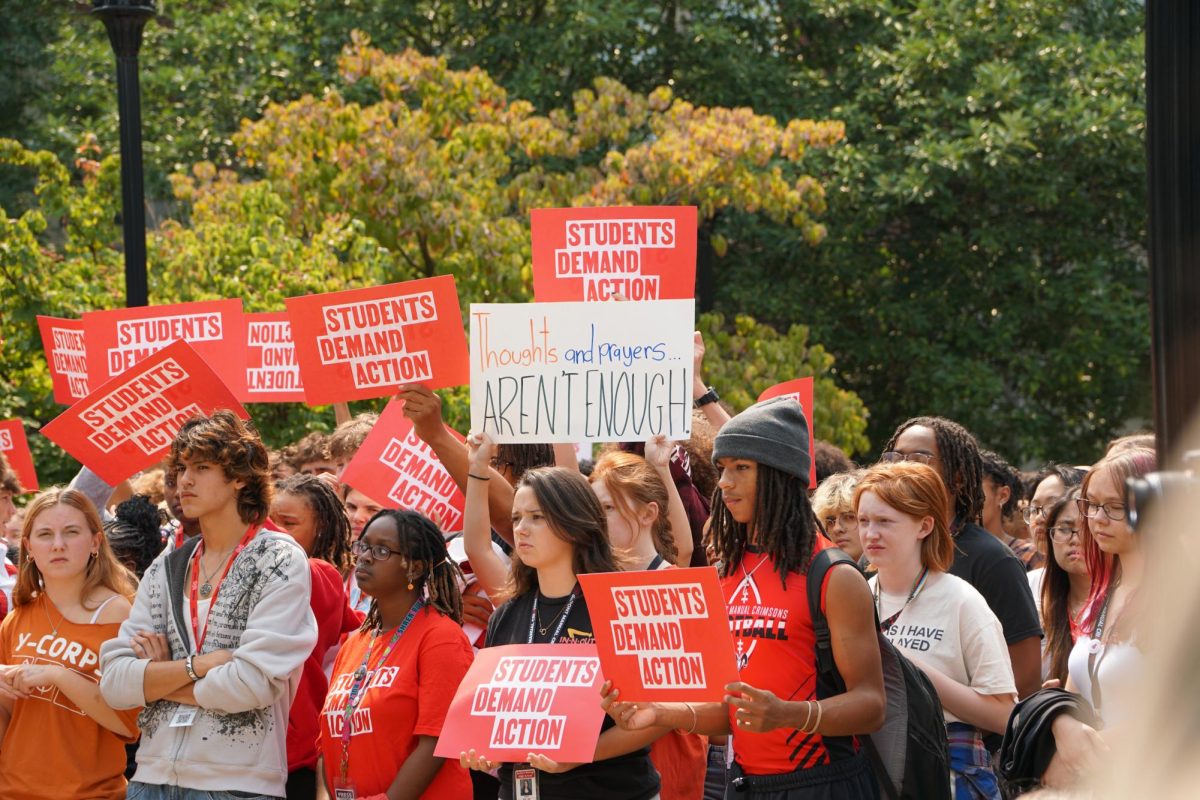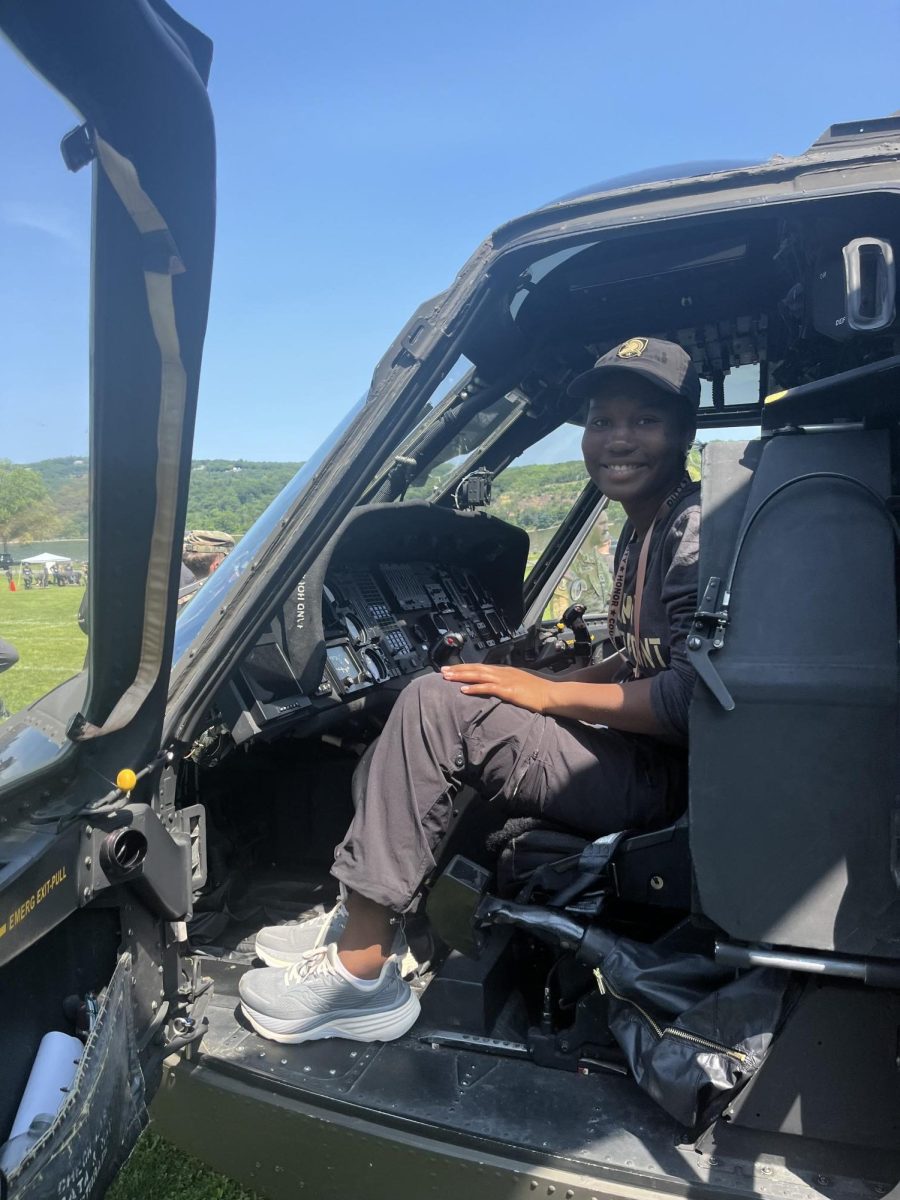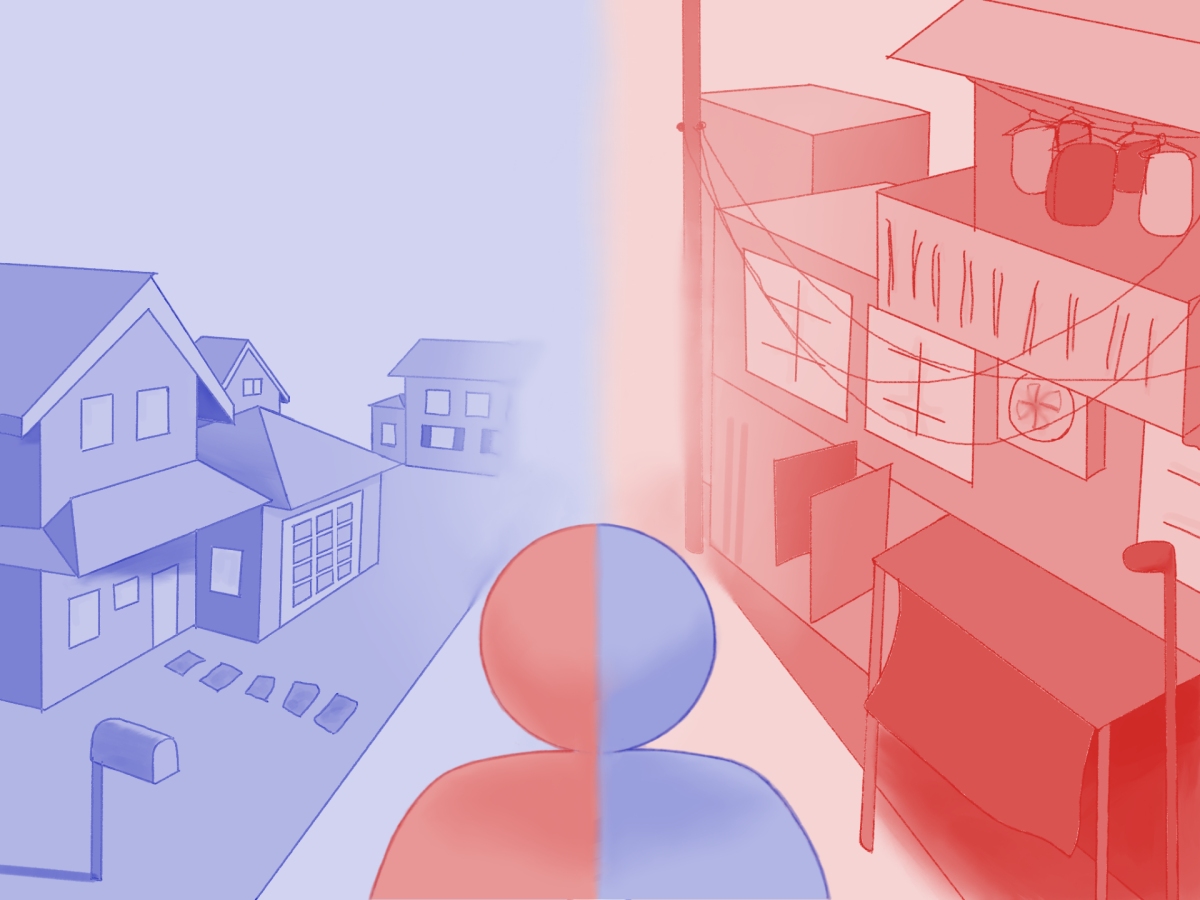The moment sophomore Nikhita Srikanth stepped off the plane in India, she immediately began to sweat from a wave of hot, humid air. Trash sitting outside her door welcomed her return to India after three years away. As she walked through the bustling streets of Bangalore, attracting stares for her baggy, Western clothing, waves of noise bombarded her ears — a stark contrast to the peaceful quiet of Cupertino.
Srikanth’s experience highlights what 58% of MVHS students recall experiencing when returning to their home country: culture shock. Defined as a feeling of uncertainty when exposed to an unfamiliar culture or environment, culture shock affects students who live in America when they travel back to their place of heritage.
Junior Nicole Jeleva, who has visited her parents’ home country of Bulgaria every summer of her life, recalls experiencing a different standard of living there. She says many people, like her grandma, use old appliances and live in old buildings. Jeleva believes this would shock people accustomed to the newly renovated homes common in Cupertino.
“Here, it’s more like everything’s being modernized and constantly being changed and trying to be made better,” Jeleva said. “If you walk into someone’s house and they have this really old kitchen or their floors are creaky, you’d be like, ‘Oh, like what the hell?’ Obviously in Bulgaria, they have new buildings and skyscrapers, but I feel like they separate that into a different part of the city.”
MVHS parent Xiaoqiao Meng traveled to his home country of China over the summer. After living in the U.S. for 23 years as an immigrant, one of the biggest differences he noticed was the amount of high rises and short walking distances to locally-owned businesses in Hubei, compared to the large, spread-out franchises in Cupertino.
Though he appreciates the convenience of Hubei’s high density of restaurants, Meng still felt that his quality of life improved when he moved to the U.S., highlighting the larger living space and easier transportation. However, going back to China this year, he noticed the overall conditions there have improved as well.
“The streets have become cleaner, and because they have a lot of electric cars right now, the air pollution is much less compared to five years ago,” Meng said. “People tend to have a higher spirit when I’m meeting them in the street. So generally, I feel it’s better compared to five years ago.”

However, junior Margaux Mojica, who traveled back to their home country of the Philippines over the summer, recalls a more negative experience. Mojica says they felt shocked after seeing signs of poverty and economic downturn in the Philippines, a contrast to their experience in Cupertino.
“I expected there to be a homelessness crisis, because I know our economy has been struggling lately, but I didn’t realize it was so bad to the point that everywhere I looked, I would notice people struggling,” Mojica said. “I noticed there were a lot of broken-down buildings, which was really surprising. Next to me, famous hotels which used to be really populated became run-down and abandoned.”
While many people strive to stay connected to their culture, they may notice aspects of that culture differ between Cupertino and their home country. Jeleva notes that despite her efforts to stay connected with Bulgarian culture, she still didn’t fully fit in while in Bulgaria, as living in the U.S. influenced her culture.
“When I go back to Bulgaria and I’m talking to my Bulgarian friends, after they’ve talked to me for a while, they can tell that I don’t live there,” Jeleva said. “In Cupertino, we still follow a lot of Bulgarian traditions, but I feel like our version of Bulgarian culture has become slightly Americanized just because we’ve been here for so long and I’ve had my entire life here.”
Mojica has also noticed that living in America has impacted how they experience Filipino culture, especially in cuisine. Dishes that are relatively common in the Philippines, such as pig’s blood, are unavailable in the U.S., so their family has explored new types of food.

“Here, since we’re surrounded by lots of other ethnic cultures, we kind of include that in our practices,” Mojica said. “For example, we’ve been trying new foods, which weren’t really available in the Philippines, because most of what’s available in the Philippines is Filipino culture and Filipino cuisine.”
However, even people who are able to maintain a close connection with their culture and expect cultural differences are affected by culture shock when visiting their home country. Srikanth, who identifies more with her Indian heritage than her American nationality, says that, while she had anticipated many of the differences between Bangalore and Cupertino, she did not expect how people were much less accommodating in India. Particularly, she recalls a driver refusing to seat her group of four in his car, despite there being a total of six seats.
Still, people are able to adapt to differences in culture. Though it took him nearly a year to get used to life in America, Meng now feels comfortable in both countries and is able to adjust quickly when traveling between them. Similarly, Srikanth says she gets used to the different culture after a few days in India, to the extent that she forgets toilet paper exists. She even feels that she’s able to express herself more comfortably while in India.
“I feel more able to voice my opinions over there than here,” Srikanth said. “I’m not a very vocal person, but if I go to India I can speak in both my native language and English. People are usually impressed that I can speak my native language, because people from there itself don’t speak it anymore, so that’s probably why I feel more confident.”
Although going back to a home country may be a different experience, ultimately, Mojica says it helps them feel more connected to their culture. The visits allow them to bridge the gap between their cultural practices here in America and in the Philippines. Jeleva agrees, seeing traveling back to Bulgaria as a necessity that she hopes to continue in the future.
“Going back to Bulgaria refreshes my cultural identity, and I love going back every year,” Jeleva said. “My parents were like, ‘Oh, I don’t even know if we’re gonna have time this year. We have this, this, this.’ I told them, ‘No, we have to find time. We need to go back.’”
This story was originally published on El Estoque on September 29, 2024.






































